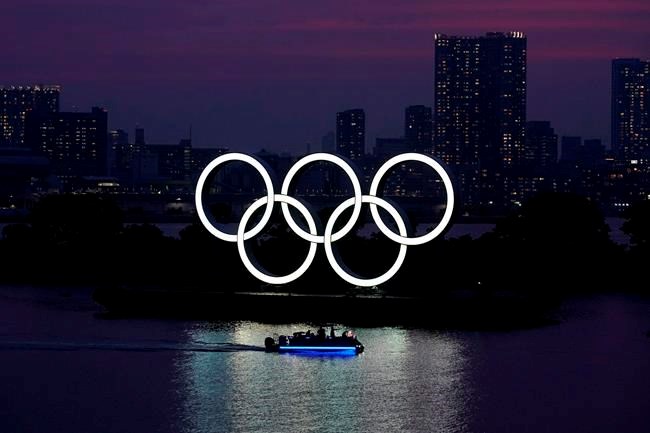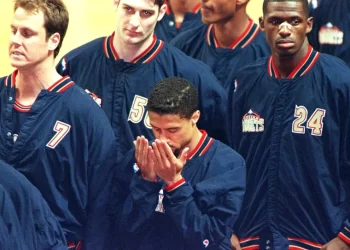By: Zachary Draves
Sorry, Laura Ingraham. Sorry, Megyn Kelly. Sorry Insurrectionist enabling political hacks. Your goal of athletes being kowtowed into submission is not gonna happen.
Not only has that been the case over this past year with the protests over racial injustice but we are seeing it on full display at the Tokyo Olympics.
That activist spirit is going to flourish on the field, on the track, in the pool, on the mat, possibly on the podium, on clothing, and on social media and there’s nothing you can do about it.
This generation of athletes knows full well the platform and responsibility they have to call attention to some of the most pressing issues of our time among them racial/social justice, human rights, and freedom of expression.
They see clear through the charade put forward by the International Olympic Committee and their outdated draconian measure known as Rule 50 that explicitly prohibits the athletes basic right to engage in protest and express their political and social sensibilities, contradicting some of the most landmark human rights frameworks on the books such as the United Nations Declaration on Human Rights implemented in 1948.
Already we are seeing acts of resistance in the Olympic domain.
The Women’s Soccer Teams from the US, England, Sweden, New Zealand, and the host nation of Japan took a knee to protest racism prior to their respective matches.
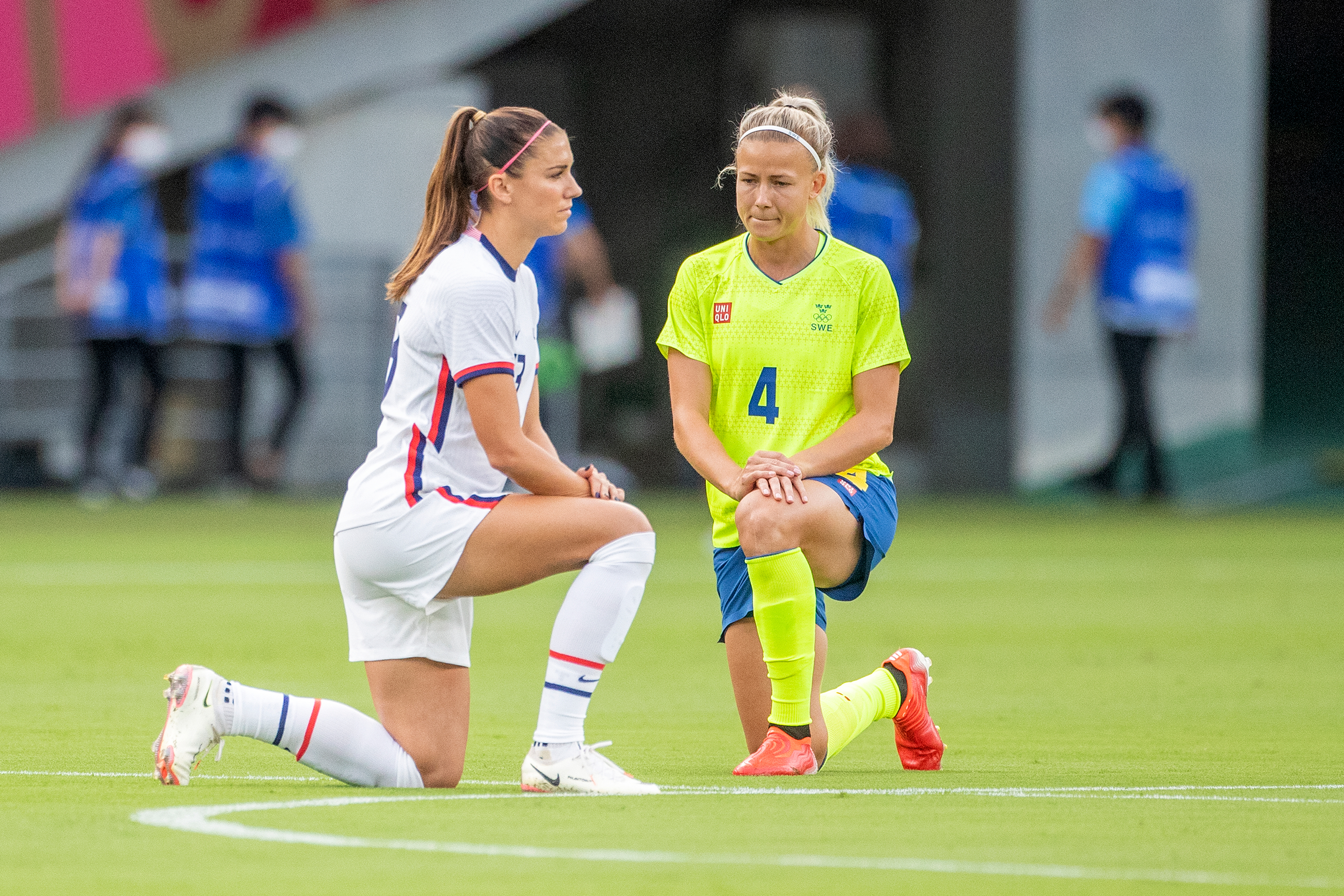
(Courtesy: CNN)
The Australian Women’s Soccer Team before their match took a photo holding the Australian Aborigional Flag in solidarity with a people that have had to bear the brunt of years of systemic racism and brutality.
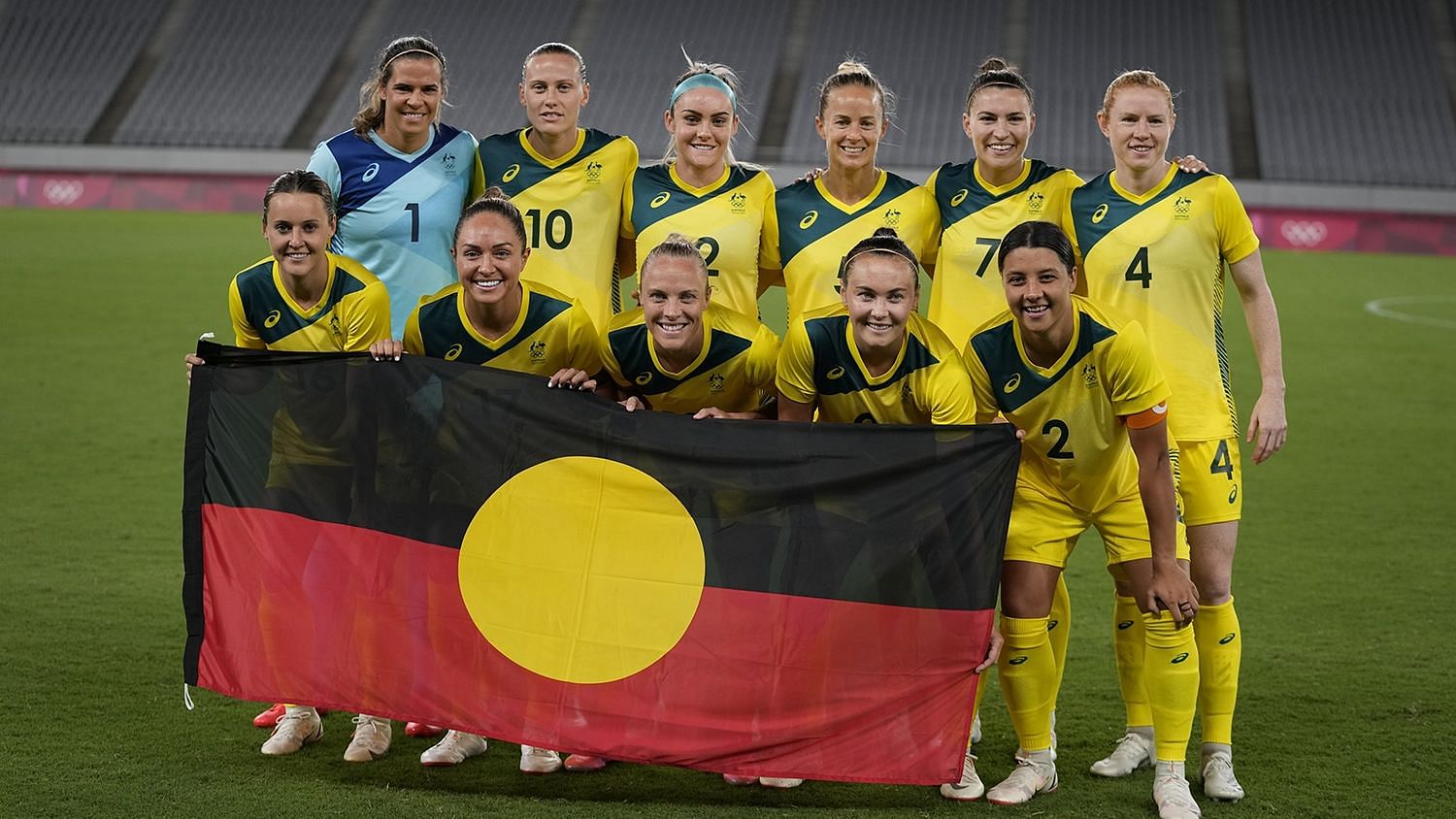
Then 18-year-old gymnast Luciana Alverado of Costa Rica incorporated a Black Lives Matter tribute in her routine as she raised a fist and took a knee at the completion of her routine.
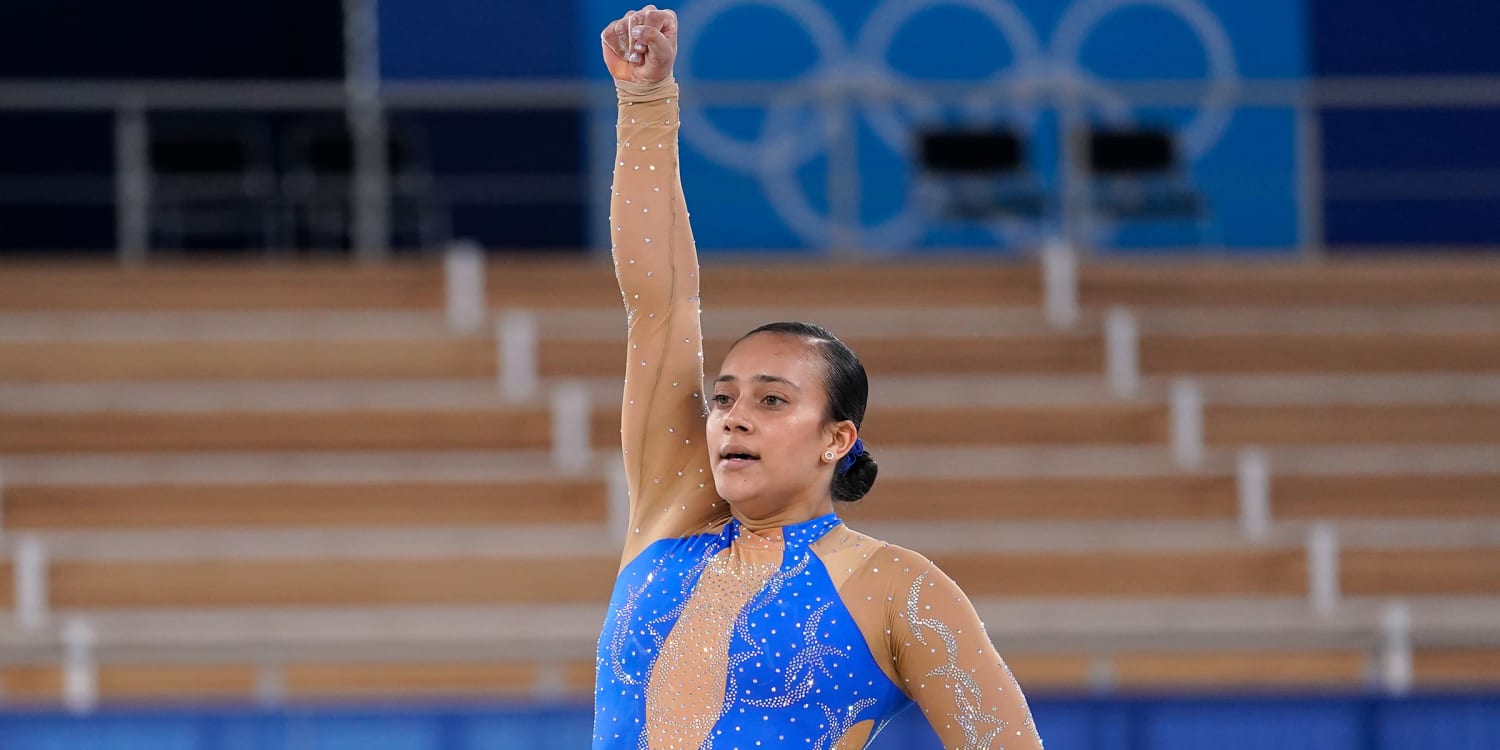
(Courtesy: Today.Com)
The Canadian Women’s Rugby team boldly wore t-shirts that read the inclusive message BIPOC Lives matter referring to black, indigenous, and people of color.

(Courtesy: Times Colonist)
There is still a whole week and a half left of Olympic action and expect more athletes to follow suit, possibly Gwen Berry, the US Basketball Teams, and US sprinter Noah Lyles in the 200 meters all of whom have engaged in social activism prior to Tokyo.
In the midst of all this anticipation, there has already been an organized effort to demand the IOC rethink Rule 50 and not to punish athletes for exercising their basic human right to protest.
A historic letter to the IOC consisted of a 150+ signatures that included athletes, educators, and activists was published just a day before the opening ceremonies and fittingly through the Muhammad Ali Center is just the beginning and I was honored to be one of those to lend my voice to this movement.
Among the athlete signatories were Gwen Berry, Tommie Smith, John Carlos, Race Imboden, and Ali’s daughter Laila Ali.
The educators and activists who signed on were Dr. Harry Edwards, Dr. Richard Lapchick, Dr. Akilah Carter-Francique, Dr. Jules Boykoff, Eli Wolff, Alicia Garza, among many others.
The letter is posted here https://alicenter.org/wp-content/uploads/2021/07/IOC-Rule-50_HR-Expert-Letter_Final-final.pdf
Among the signatories was Dr. Yannick Kluch, Sports Studies professor at Virginia Commonwealth University and consultant to the United States Olympic and Paralympic Racial and Social Justice Council who was one of the chief architects of the letter.

(Courtesy: Rowan Today)
He said that the IOC’s recent changes to their guidelines that said that athletes could speak out before and after the competition as well as lifting the ban on covering protests on social media was a step in the right direction but not enough and as a result, he got to work.
“Me and a couple of other social justice and human rights advocates thought it would be better for experts to enter the conversation on Rule 50 and say what you have been arguing is not convincing of the work we have done” he said.
“Initially we thought about the letter after the games so we had a better idea about what had happened with protests but then we decided it would have been a stronger statement to publish it before the games.
The goal is to get the IOC to realize that what they are doing is incongruent with their own mission of human rights and respect within the world of sport.
The letter also called out a recent survey that was put out by the IOC and by extension the International Paralympic Committee (IPC) that claimed that the majority of athletes who participated said that they were against allowing protests entirely.
The study was riddled with flaws and all the logistics needed for a legitimate study.
As explained in the letter:
we must call into question some of the empirical data used to represent a collective athlete voice opposed to amending IOC Rule 50/IPC Section 2.2. On April 21, 2021, the IOC Athletes’ Commission, led by Kirsty Coventry, published the results of a year-long consultation process with athletes across the globe regarding their opinions about IOC Rule 50 broadly and athlete protests and demonstrations specifically. Drawing from responses from 3,547 Olympians representing 185 National Olympic Committees (NOCs), the report stated that “it was apparent that the majority of athletes did not deem it appropriate for athletes to express individual views during the Opening Ceremony, on the podium or on the field of play.” However, the report provides no information on racial/ethnic demographics or insights into the research instrument used and steps taken to strengthen the validity and trustworthiness of the data. Athletes have shared with us that the questions in the survey were leading. As a result, we call into question that the consultation, as stated, adheres “to the most rigorous scientific standard.” In addition, the consultation stated it received “feedback from human rights experts” and “the IOC AC has consulted with respected experts in the field of human rights to gain their perspectives on freedom of expression and Rule 50.2” – yet the IOC AC fails to articulate clearly enough (a) whom the IOC AC consulted specifically, (b) what qualified them to speak as experts on human rights, and (c) how the human rights expertise from the person(s) consulted impacted the final report. As internationally recognized experts on the intersection of sport, human rights, racial/social justice, and society, we do not believe that any human rights expert would support IOC Rule 50/IPC Section 2.2. Further information is needed on how the IOC AC utilized the expertise of human rights experts to come to the recommendations outlined in the consultation report. Finally, and perhaps most importantly, solutions to the violation of human rights and jeopardization of human dignity must center the voices of those affected disproportionately by such violations: that is, members of groups that have historically been excluded, marginalized or minoritized. Their voices seem absent in the consultation report, further calling into question the rigor and validity of the report.
As for the future, Dr. Kluch foresees that with enough coalition building, sustainability, a sense of commitment, and strength in numbers that by the 2024 Olympics in Paris, Rule 50 could, if not completely done away with, reflect a commitment to human rights.
“I would certainly hope that the IOC/IPC is listening not just to us because there are a ton of athletes who are speaking out against the rule” he said.
“I would hope that the IOC/IPC would listen to our recommendations and update the rules that reflect the human rights frameworks that we provide for them in the letter.”
It’s time for the Olympics to put up or shut up when it comes to its own mission that it claims to live by.
We are here to stay and any commitment to using sport for social justice is worth more than any medal and if the IOC or certain political personalities don’t like it, well you know……


 NFL
NFL